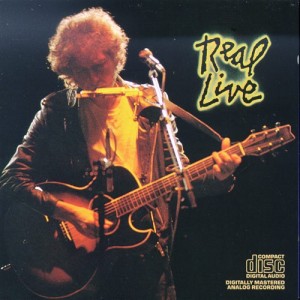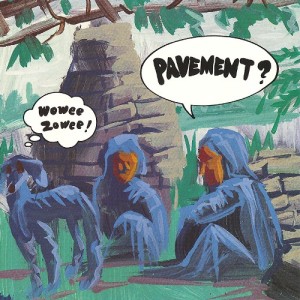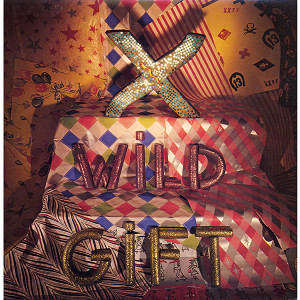Link to a review of Luc Boltanski and Ève Chiapello’s book Le Nouvel esprit du capitalisme by Sebastian Budgen:
Author: Syd Fablo
Bob Dylan – Real Live
Bob Dylan – Real Live Columbia CK 39944 (1984)
Most listeners look back on Bob Dylan’s 1980s output with regret, pondering what might have been. Now most people look right past Saved and Shot of Love (possibly a mistake; they are okay). They then look on Infidels with bemused sadness, wishing that “Blind Willie McTell” and other great songs hadn’t been excluded from it. Dylan had frequented some punk concerts around that time due to his son’s interest, and in support of Infidels he appeared on the TV show “Late Night with David Letterman” in early 1984 with The Plugz as his backing band. He captured a lot of punk energy on great renditions of “Jokerman” and “License to Kill.” But that proved to be the only appearance of Dylan with that particular backing band. Touring Europe later that year he instead enlisted Mick Taylor (who played on Infidels) and Ian McLagan. He did not bring along the bass/drums rhythm section of Sly & Robbie from the Infidels sessions. Real Live was culled from three July dates in England and Ireland. Carlos Santana makes a guest appearance on “Tombstone Blues” from one of the English dates. This touring band plays professionally, but largely without much personality. The results are at best a kind of traipse through pub rock versions of mostly old Dylan standards (had Dylan been inspired by his pal Johnny Cash‘s Rockabilly Blues with its similar pub-rock influence?). The general effect is one of aging rockers trying and failing to sound relevant to newer tastes. It does sound a hell of a lot more modern than maybe anything in Dylan’s catalog, though. It may not be the disaster that some make it out to be, but it’s still a pretty middling effort. Most listeners can skip past it. Now, if those Letterman recordings were released, those would be worth seeking out.
Kara M. Stein – Dissenting Statement Regarding Certain Waivers Granted by the SEC
Link to a regulatory dissenting statement by Kara M. Stein:
Justin Elliott – How the Red Cross Raised Half a Billion Dollars for Haiti and Built Six Homes
Link to an article by Justin Elliott of ProPublica:
“How the Red Cross Raised Half a Billion Dollars for Haiti and Built Six Homes”
Pavement – Wowee Zowee
Pavement – Wowee Zowee Matador OLE 130-2 / 45898-2 (1995)
I have mixed feelings about Wowee Zowee. It has never had the same impact on me as other Pavement albums. The band always seemed to be at their best when they took an assortment of intriguing influences and put their own indelible stamp of personality on the results. But this album…just doesn’t seem to come together as much as the best ones (Slanted & Enchanted, Brighten the Corners). Scott Kannberg has suggested this album was a little rushed, and might have been different if the band had more time to work on it. That seems like a compelling description. Regardless, this one comes across as one of those mid-career rock albums from a band that has had some success but maybe isn’t ready to just settle on an established formula. So the result is an eclectic bricolage, with various styles and influences on display (comparisons being The Mothers of Invention‘s Freak Out!, The Beatles‘ White Album, Stevie Wonder‘s Songs in the Key of Life, The Clash‘s London Calling, etc.). While the raw materials are certainly here, and there is a great song (“Rattled By the Rush”) and a few more that are really good (“My Best Friend’s Arm,” “Grave Architecture”), overall the band fails to make the best of it. If you like this, you’re probably the type to look past the faults to its assorted charms, and, if you don’t like it, you probably can’t avoid getting hung up on the album’s faults. I fall more in the latter camp.
Miya Tokumitsu – Why We Should Listen to Frank Lloyd Wright
Link to an article by Miya Tokumitsu:
“Why We Should Listen to Frank Lloyd Wright”
Basically, an endorsement of Thorstein Veblen‘s economics.
Bonus link: “The FBI vs. Frank Lloyd Wright”
Michel Husson & Stephanie Treillet – Liberation Through Vacation
Link to a translation of an article by Michel Husson & Stephanie Treillet:
X – Wild Gift
X – Wild Gift Slash SR-107 (1981)
There is something that comes out in people who break the rules. That something can be powerful. It has faded since the time X put out Wild Gift, but it’s still possible to conjure it up while this record is on. All it takes is a spark. When beyond the rules there is a clear shot at freedom, then the rules become, along with youth itself, a fuel for those passionate activities that survive measurements of days, toil and bothers. It’s a precious fuel, which spoils easily with any attempt to store it away. So, the music of Wild Gift isn’t groundwork or penance for something else. It is a fire burning now. Now. NOW! The effects are immediate. The effects are spectacular.
X’s music embodies a lifestyle — a little haggard, a little idyllic — that goes against the norm. Wild Gift sounds less obviously “punk” than its predecessor, Los Angeles. But the same fury is still there, if one cares to notice. What Wild Gift has that Los Angeles doesn’t is the open-minded welcoming of any new genre, hook, or snippet of prose with forward momentum. Occasionally, detours into cha-chas and other novelty dance rhythms (“Adult Books” and “Year 1”) threaten to break the album apart, but always the band pulls together again — help often coming in the form of dependable rockabilly riffs. If Wild Gift, and punk rock in general, have one thing to offer, it’s bringing together the disparate stains of counterculture for a few hotly productive moments, for a serendipitous turning around. The coming together itself isn’t the achievement. It’s what happens after. Total realignment.
Yes, X had conventional musical talent. One of the grand ironies of the great ’77 punk explosion was that bands without musical talent — conventional or otherwise — could put on good shows, but they usually couldn’t make decent records. X could blend humor, heartbreak, desperation, longing, and fervor in a way that doesn’t force its way to the front. The experiences of surviving L.A. are in there. By completely avoiding any prophesizing, X cement their own outlook without a need for justification. Like “Some Other Time” blathers: “we can draw the line some other time.” If nothing else, Wild Gift represents people being people, and realizing that only later.
Henry Giroux and Vince Cherniak – Inside the Belly of the Beast
Link to an interview with Henry A. Giroux by Vince Cherniak:
Jeff Bryant – The Great Charter School Rip-Off
Link to an article by Jeff Bryant:
“The Great Charter School Rip-Off: Finally, the Truth Catches Up to Education ‘Reform’ Phonies”



